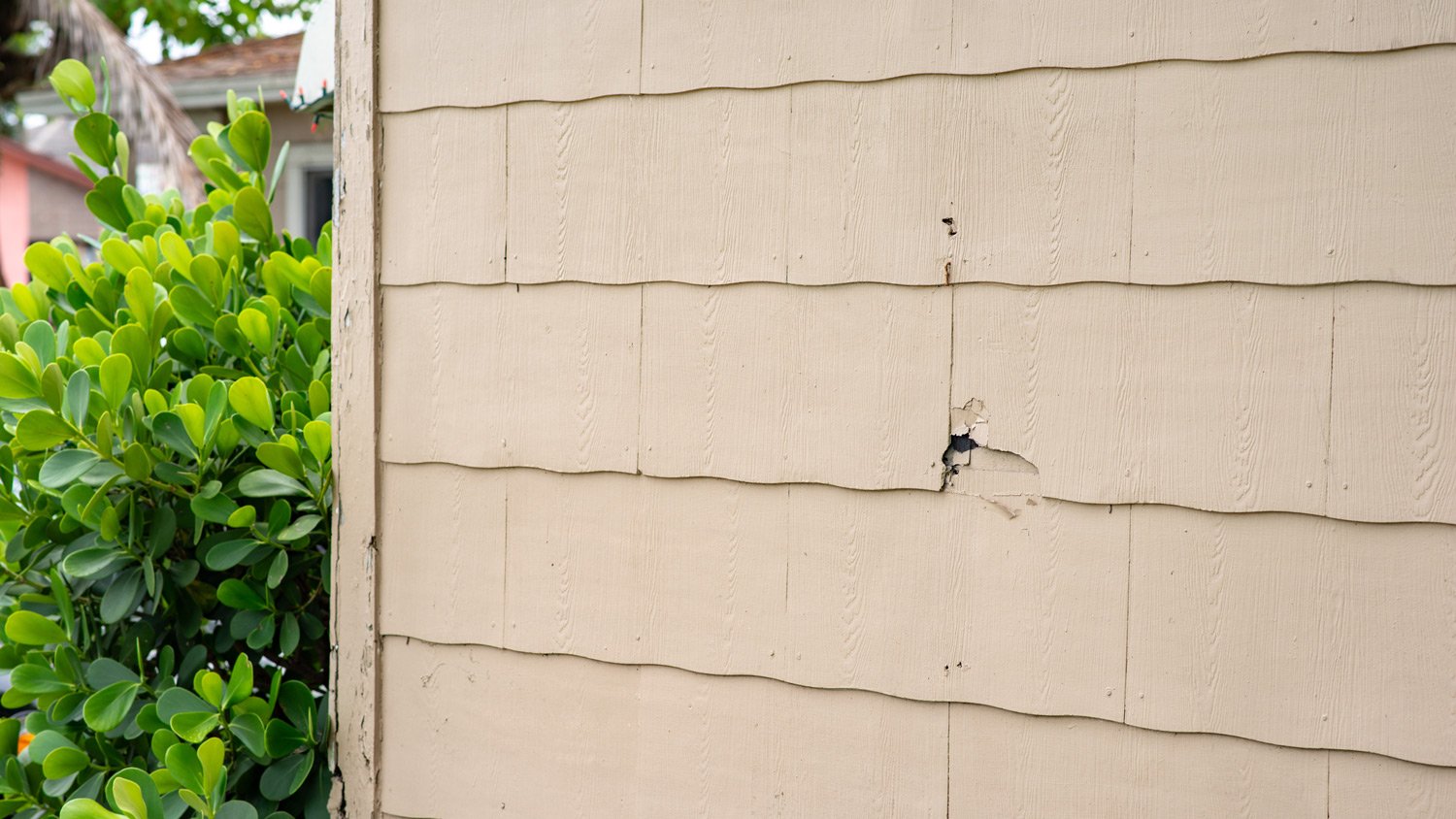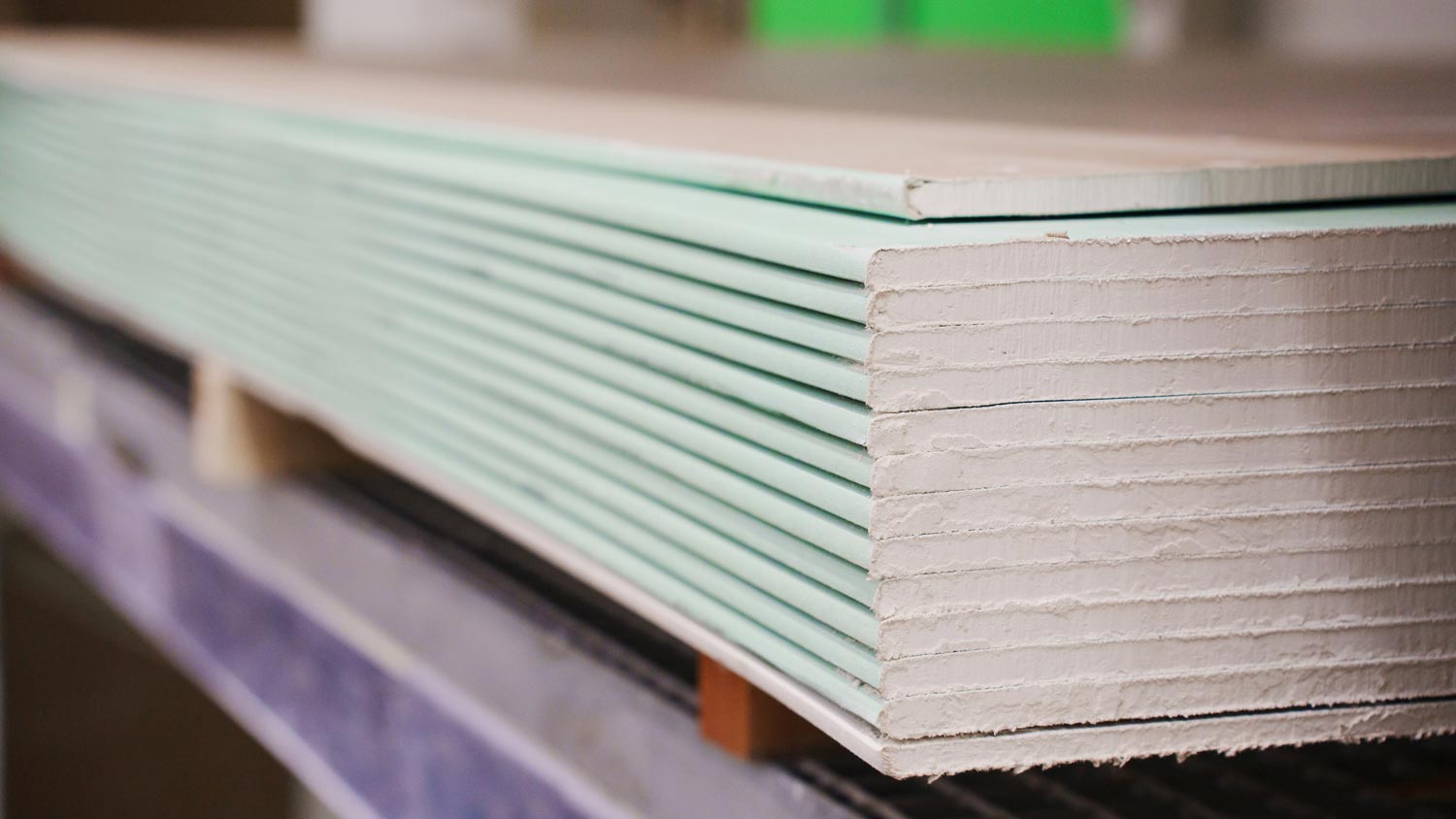How to Identify Asbestos in Your Floor Tiles
Asbestos tiles in your home aren’t always a cause for alarm


Asbestos was a popular building material until the 1980s.
Asbestos can cause cancer, but only if disturbed or damaged.
You can safely live with asbestos floor tiles if they’re in good condition.
Local laws may require that testing or removal be done by licensed pros.
Suspecting that you have asbestos floor tiles in your home can be a worrying thing. After all, asbestos material can cause diseases like mesothelioma, a type of cancer. The only way to know for sure that your floor tiles contain asbestos is to have a professional come to your home to gather a sample and send it to a laboratory for testing.
Here, we explain what you need to know about identifying asbestos floor tiles, who you should call for testing, and your options for removing them.
What Is Asbestos?
Until the 1980s, asbestos, a naturally occurring fibrous mineral, was a popular component of construction materials because of its low cost, strength, and effectiveness as a fire retardant, insulator, and acoustic material. Companies used asbestos in floor tiles, insulation, shingles, cement products, adhesives, and fireproof materials, among other uses.
However, when asbestos fibers become airborne, they pose a risk to humans. The fibers can lodge in people’s lungs and never break down, causing diseases including lung cancer, asbestosis, and mesothelioma.
Still, asbestos isn’t illegal in the United States. The last asbestos mine closed in 2002, but companies can still import it and use it in small amounts; it’s legal for products to contain up to 1% asbestos.
The good news is that asbestos-containing materials are generally only dangerous when damaged or disturbed during use, renovation, or removal. That’s why it’s so important to know whether your home contains asbestos and if so, exactly where it’s located.
How to Tell if You Have Asbestos Tile

The only way to be sure your floor tiles are made with asbestos is for a licensed asbestos inspector to inspect them and send samples to a laboratory. However, there are some signs that asbestos is in your home and tiles. Here are some things to look for.
Asbestos is odorless—so don't rely on your nose to tip you off about asbestos in your home. Asbestos fibers are too tiny for humans to detect their smell, so even large amounts of asbestos will lack a scent. The only way to know if your home has asbestos is to have a pro test for it.
Manufacturing Date
The U.S. Environmental Protection Agency (EPA) partially banned asbestos-containing products in 1989. If your flooring was made before 1989, especially between 1950 and the late 1980s, it very likely includes asbestos.
Tile Size
Most asbestos tiles are 9” x 9”, 12” x 12”, and 18” x 18”. They also tend to be thicker than other types of tile.
Black Mastic Adhesive
Many asbestos tile installers used black mastic, also called cutback adhesive. Black mastic adhesive is asphalt based and often contains asbestos itself, even if the tiles it’s used on don’t.
Discoloration of Floor Tiles
If your tiles are faded, yellowed, stained, greasy or oily looking, or show other discoloration in spots, that may be an indication that they contain asphalt and thus asbestos.
Floor Tile Manufacturer
Many popular building-material manufacturers made asbestos floor tiles. If your flooring fits the timeline and was made by one of these companies, it likely contains asbestos:
American Biltrite
Amtico
Armstrong
Congoleum
Everwear Inc
GAF
Kentile
Montgomery Ward
Sears-Roebuck
Can You Test Floor Tiles for Asbestos Yourself?
Since asbestos is toxic, you should leave testing to the experts. In fact, many municipalities require licensed asbestos remediation experts to perform testing.
That said, you can buy DIY asbestos testing kits online and in hardware stores. Most DIY kits cost between $10 and $50, and they may cost an additional $25 to $50 to process. Kits include instructions for collecting samples; be sure you follow all instructions and wear appropriate safety gear (including disposable gloves and a dust mask or respirator). This is vital, since you never want to expose yourself or family members to asbestos fibers.
Be aware that even if you test for asbestos yourself, you may eventually be required to pay for professional testing. Professional asbestos testing costs on average $500. If you’re concerned your home or other building contains asbestos, first call a local building authority. They will be able to tell you about testing requirements and can save you from wasting money.
Can You Live With Asbestos Tiles?
It depends. If your floor tile is undamaged and intact, it may not pose an immediate threat. One of the easiest, least expensive, and best ways to deal with asbestos in tile (and any other asbestos-containing material) that’s in good condition is to cover it with new material. Leaving it in place prevents the release of fibers, and covering it with new flooring will add a layer of protection (as long as it’s done right).
If you do leave asbestos tiles in place, be sure that the new flooring and installation method won’t damage them. Factor in safe installation when estimating new carpet or tile installation costs. Continue to monitor your floors annually and if you begin to see damage, call in a pro to help safely remove the flooring.
It’s also smart to make a note of the presence of asbestos—what materials were tested and where the asbestos was found—for future reference. If you sell your home, give your real estate agent this information so that buyers can take precautions when remodeling or installing new flooring.
When to Remove Asbestos Floor Tiles
Whole, undisturbed asbestos tiles in good condition are generally safe and probably don’t need to be removed or even covered. However, you should remove flooring that is aging, damaged, has worn surfaces, has been cut or sanded, has sustained water damage, or is in an area of hard use.
If you aren’t comfortable living with asbestos in your home, if the asbestos-containing materials are damaged or likely to become damaged or worn, or if you are planning to remodel, you should learn about asbestos removal options.
To determine if it needs to be removed, call a local tile contractor or licensed asbestos inspector for testing and advice.
How Much Does Asbestos Floor Tile Removal Cost?
Asbestos tile removal costs an average of $2,200, and ranges between $1,200 and $3,250. But first, you’ll need to budget for testing. Asbestos testing costs an average of $485, but it ranges between $230 and $780 to have professional asbestos testers check for asbestos.
You should never try to cut costs by DIYing asbestos tile removal. It’s not worth the health risks involved with handling hazardous material. Due to the toxic nature of asbestos and the challenge of removing it safely, it’s best to hire a professional asbestos remediation contractor near you. Their fees range from $8 to $15 per square foot, on average. Confirm whether the job estimate includes the cost of disposal and permitting or if you can expect any added fees on top of removal costs.





















